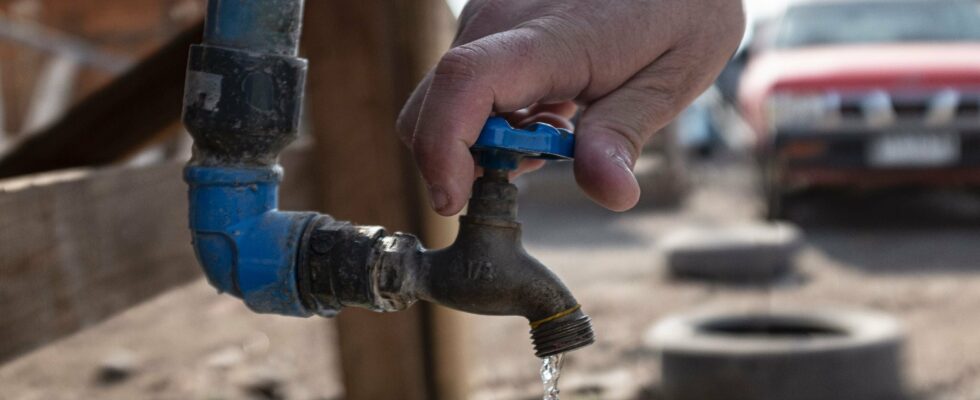In this episode, we detail the “dark scenarios” of water with Valentin Ehkirch and Baptiste Langlois, journalists in the Climate section of L’Express.
FIND ALL THE EPISODES OF THE MAGNIFIER
Listen to this episode and subscribe to La Loupe on Apple Podcasts, Spotify, Deezer, Google Podcasts, Addict Podcast And Amazon Music.
The team: Charlotte Baris (presentation), Mathias Penguilly (writing), Milena Rossi (editing) and Jules Krot (directing).
Credits: INA, France 2, France 3, Brut, TF1, BFMTV, France Culture, RCF
Music and dressing: Emmanuel Herschon / Studio Torrent
Image credits: MARTIN BERNETTI / AFP
Logo: Anne-Laure Chapelain / Benjamin Chazal
How to listen to a podcast? follow the leader.
Charlotte Baris: Dear listeners, if you listened to yesterday’s episode, you know that this week we are engaged in a little foresight exercise with the journalists from L’Express. Yesterday, with Alexandra Saviana, from the Society department, we developed several disaster scenarios for French Defense. What do they have in common? They all involve the same enemy: Russia. If you haven’t listened to this episode, I invite you to pause it, rewind the thread on your listening platform and come back in a few minutes.
Today, we decided to continue this exercise with a much less geopolitical subject. But that has been worrying experts for a long time. You have understood, our subject of the day is water. How we access it, how we use it on a daily basis. Its destructive potential too.
And for this, we called on two journalists from the Climate section of L’Express. They will show us to what extent the risks are numerous and call for very different responses, starting today.
For further
March 2026, the 100-year flood of the Seine devastates Paris: our dark water scenarios
August 2027, a mega-fire in Hérault: the worrying hypothesis of an “overrun”
January 2026: a dangerous weather cocktail savagely hits the north of France
August 2029: several scorching summers fuel tensions on the Rhône
